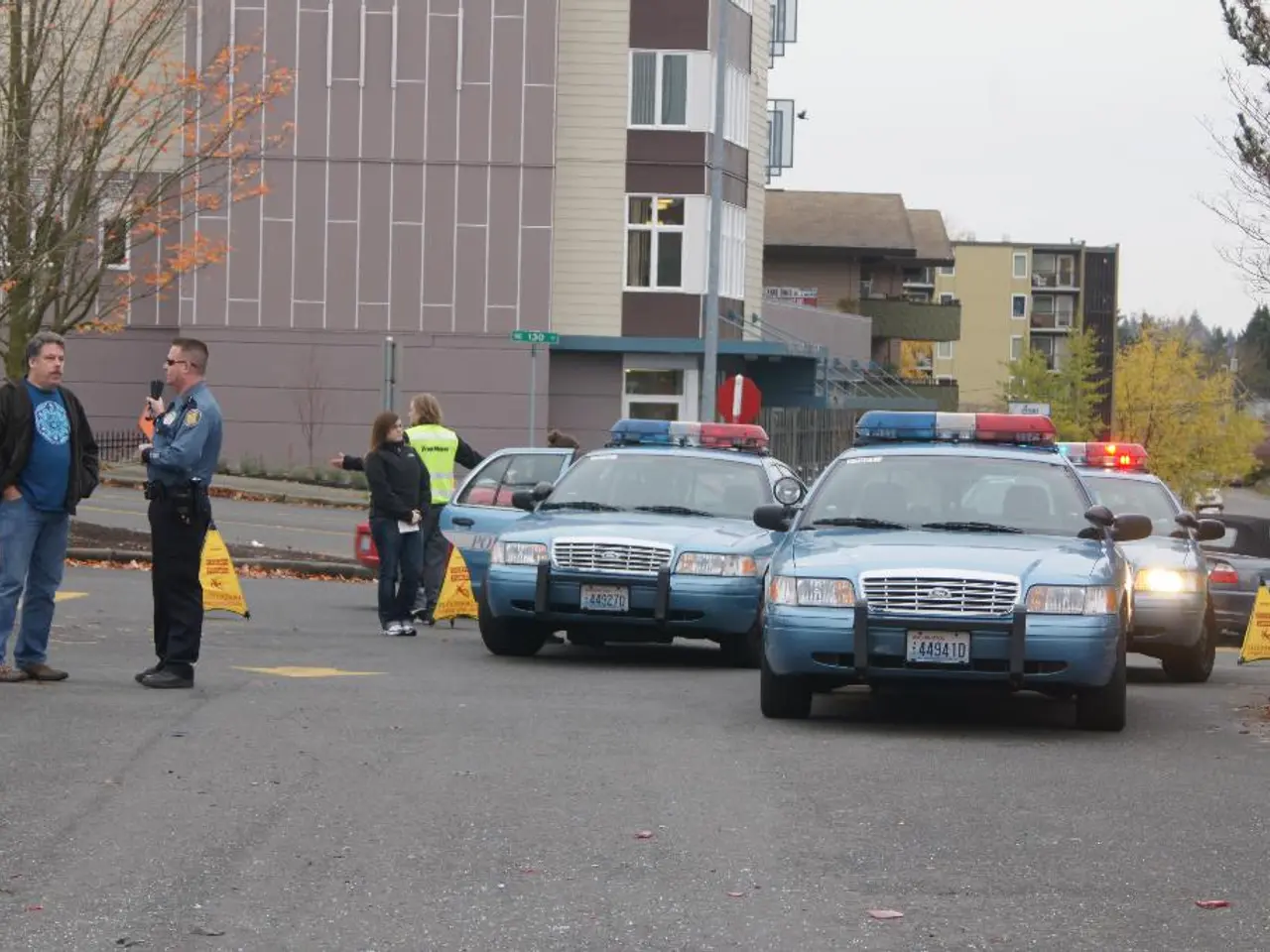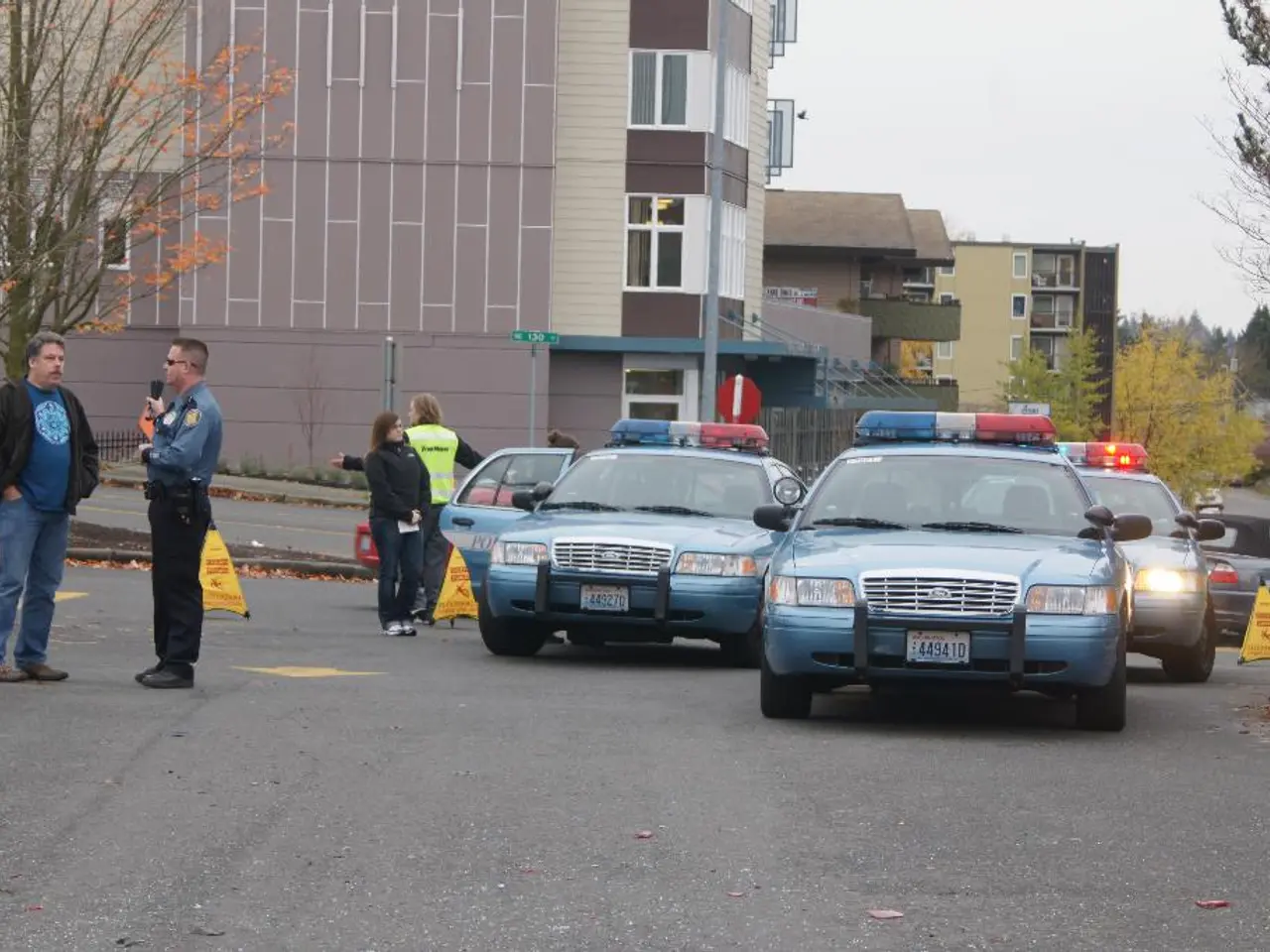Disaster declaration by the first state amidst escalating heat crisis
In the heart of summer, our country is grappling with a series of heat waves affecting various regions, including the Saalfeld-Rudolstadt district in Thuringia. The thermometer has long surpassed the 30-degree mark in some regions, with temperatures reaching an alarming 40 degrees in certain parts of the country.
This extreme heat has led to a state of emergency being declared in the Saalfeld-Rudolstadt district due to a raging forest fire. The fire, reportedly uncontrollable, has engulfed around 250 hectares of forestland, posing a significant threat to both humans and nature.
To address this crisis, around 200 deployment forces have been on site since Wednesday afternoon. Their efforts are backed by a suite of emergency measures designed to mitigate the impacts of extreme heat on public health and infrastructure.
Across the United States, several specific measures are typically taken during heat-related state emergencies. For instance, federal and state officials may activate emergency orders to ensure power systems can meet the increased demand during heat waves. This could involve operating generating units at full capacity to prevent blackouts.
In terms of public health and safety, states may activate their emergency operations centers to monitor and respond to heat-related emergencies. They often provide resources such as cooling centers and emergency services. Governments also issue guidelines to help residents stay safe during heat waves, including staying indoors, limiting outdoor activities, and staying hydrated.
Municipalities open public spaces like libraries and community centers as cooling centers where people can seek relief from the heat. States may also deploy equipment like generators, pumps, and light towers to support local needs.
In the spirit of community engagement, governments encourage residents to check on vulnerable neighbors, such as the elderly or disabled, to ensure they are safe. Governments may also provide text alerts for weather and emergency updates to keep citizens informed.
In recent years, there have been several state of emergency cases due to heat in the summer. The heat wave brings some dangers, including a threat to human health and safety. Prolonged heat can be dangerous for humans, particularly the elderly, people with pre-existing conditions, pregnant women, children, and even healthy individuals without pre-existing conditions.
Elsewhere in Europe, countries like Spain, Greece, and Italy have seen temperatures rise above 40 degrees in recent years. This heat wave has also brought about a state of emergency in one state in our country. In addition, smoke warnings have been issued in Bavaria due to the forest fire in the Saalfeld-Rudolstadt district.
As the battle against the forest fire continues, the deployment forces remain vigilant, implementing the necessary measures to ensure public safety and protect our environment. The situation serves as a stark reminder of the need for proactive strategies to combat the effects of extreme heat and forest fires.
- Given the ongoing forest fire, it's crucial for children to stay indoors and avoid outdoor activities in the Saalfeld-Rudolstadt district.
- As the climate-change-induced heat waves continue, it's essential to prioritize environmental-science research to develop effective strategies for tackling extreme heat and forest fires.








